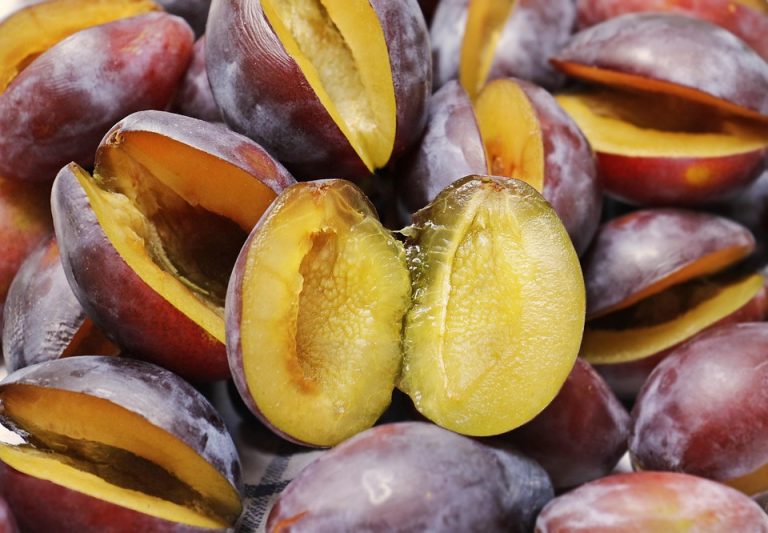Artificial Sweeteners and Salt Substitutes: What You Don’t Know Could Hurt You
The pros and cons of artificial sweeteners and salt substitutes start where most grocery aisles end—in the land of the “guilt-free” labels. You know the ones. Zero calories, low sodium, sugar-free, heart-friendly. Oh, how they sing to us! But beneath that shiny packaging, there’s a quieter question tapping us on the shoulder: Is it really safe to eat this stuff every day for the rest of our lives?
This is not just a nutrition trend or a diet fad. It’s a lifestyle choice that could impact your heart, your brain, your waistline, and even your mood. Let’s peel back the labels and take a long, honest look at the pros and cons of artificial sweeteners and salt substitutes, so you can make a decision that feels just right—for your taste buds and your health.
Contents
- What Are Artificial Sweeteners and Salt Substitutes?
- The 7 Real Pros and Cons of Artificial Sweeteners and Salt Substitutes
- 1. Pro: They Can Help with Weight Management
- 2. Con: They May Confuse Your Brain and Body
- 3. Pro: They’re a Lifeline for Diabetics
- 4. Con: Long-Term Safety Is Still Up for Debate
- 5. Pro: They Offer Dietary Flexibility
- 6. Con: Some People Experience Side Effects
- 7. Pro and Con: They Can Affect Taste Perception
- How to Use Them Wisely
- Bottom Line: Should You Use Artificial Sweeteners and Salt Substitutes?
- FAQs
What Are Artificial Sweeteners and Salt Substitutes?
Before we jump into the juicy details, let’s get our definitions straight.
Artificial sweeteners are synthetic sugar substitutes—like aspartame, sucralose, saccharin, and acesulfame potassium—that give you the sweet without the sugar. They’re often hundreds of times sweeter than table sugar, so a little goes a long way.
Salt substitutes, on the other hand, usually replace sodium chloride (table salt) with potassium chloride. You’ll find them in “low-sodium” or “heart-healthy” products, aimed at helping people manage blood pressure or reduce cardiovascular risk.
Now, let’s talk about the trade-offs.
The 7 Real Pros and Cons of Artificial Sweeteners and Salt Substitutes
1. Pro: They Can Help with Weight Management
One of the biggest selling points of artificial sweeteners is their calorie-free promise. For those trying to lose weight or manage diabetes, that’s a compelling offer.
-
Diet soda has zero calories, compared to 150 in a regular can
-
Sugar-free yogurt lets you enjoy dessert without guilt
-
Salt substitutes reduce sodium intake, potentially lowering blood pressure
Real-life tip: If you’re swapping out real sugar or salt, make sure you’re not replacing it with high-fat or high-carb compensations. Many “diet” foods sneak in other nutritional downsides.
2. Con: They May Confuse Your Brain and Body
Your brain is smart—but not that smart. When you consume something sweet, your brain expects sugar. When it doesn’t get it, it starts craving more food to make up for the missing calories.
This mismatch can:
-
Trigger overeating
-
Mess with your hunger hormones
-
Increase cravings for sweets and carbs
This is one of the lesser-known pros and cons of artificial sweeteners and salt substitutes—you might lose calories on paper but end up eating more overall.
3. Pro: They’re a Lifeline for Diabetics
For people living with diabetes, artificial sweeteners can help stabilize blood sugar levels. Salt substitutes can also help those at risk for hypertension keep sodium intake under control.
-
Sucralose and stevia don’t spike blood sugar
-
Potassium-based salt can support kidney function (in moderation)
Expert insight: The American Diabetes Association cautiously approves of artificial sweeteners in a balanced diet—but advises against over-reliance.
4. Con: Long-Term Safety Is Still Up for Debate
The FDA has approved several artificial sweeteners and salt substitutes, but that doesn’t mean they’re completely risk-free over a lifetime.
Concerns include:
-
Potential links to gut microbiome disruption
-
Possible impact on insulin sensitivity
-
Ongoing studies into links with cancer and neurological changes
While most evidence doesn’t show harm in moderation, daily, long-term consumption still raises some question marks.
5. Pro: They Offer Dietary Flexibility
For people with strict dietary restrictions—like low-carb, low-sugar, or low-sodium diets—these alternatives open up possibilities.
-
Enjoy desserts on a keto diet
-
Savor savory foods on a DASH diet
-
Reduce reliance on processed sugars and salts
Practical takeaway: Use these tools to enhance your diet, not replace whole, nutritious foods. Think of them as a seasoning—not a main dish.
6. Con: Some People Experience Side Effects
Not everyone digests these substitutes the same way.
Common side effects include:
-
Bloating or gas from sugar alcohols
-
Bitter aftertaste or chemical flavors
-
Potassium overload in those with kidney issues
Warning: If you have a chronic condition (like kidney disease), check with your doctor before switching to potassium-based salt substitutes.
7. Pro and Con: They Can Affect Taste Perception
Here’s the twist—artificial sweeteners and salt substitutes can retrain your taste buds.
-
They may make natural foods (like fruits or lightly salted veggies) taste bland
-
But they can also help you transition away from sugar-heavy or salty foods
It’s a double-edged fork. You gain the power of choice—but you also risk losing your natural sense of flavor appreciation.
How to Use Them Wisely
Now listen, darling, I’ve seen decades of health trends come and go. Fat was the villain, then it was carbs, then it was gluten. But balance? That never goes out of style.
If you choose to use artificial sweeteners or salt substitutes, remember:
-
Use them sparingly, not constantly
-
Prioritize whole foods over processed alternatives
-
Listen to your body—if it bloats, aches, or craves more, adjust
Just like lipstick can’t replace confidence, sugar-free doesn’t mean consequence-free.
Bottom Line: Should You Use Artificial Sweeteners and Salt Substitutes?
The pros and cons of artificial sweeteners and salt substitutes boil down to this: they’re not poison, but they’re not panaceas either. For many, they’re helpful tools—but only if used with care, moderation, and a keen awareness of your body’s cues.
Call to Action:
Next time you reach for that “zero sugar” label or sprinkle of salt alternative, ask yourself: Am I nourishing my body—or just quieting a craving? Your health deserves honest answers.
FAQs
Q: Are natural sweeteners better than artificial ones?
A: Natural sweeteners like stevia or monk fruit may have fewer side effects, but they’re still processed. “Natural” doesn’t always mean “better.”
Q: Can salt substitutes cause high potassium?
A: Yes, especially in people with kidney problems. Always consult a doctor before switching completely.
Q: Are artificial sweeteners addictive?
A: They can stimulate cravings and reward pathways but aren’t chemically addictive like nicotine or drugs.
You don’t have to be perfect—just a little more aware. And darling, your body will thank you in whispers at first… then applause.
Get Your FREE Natural Health Guide!
Subscribe now and receive our exclusive ebook packed with natural health tips, practical wellness advice, and easy lifestyle changes, delivered straight to your inbox.




